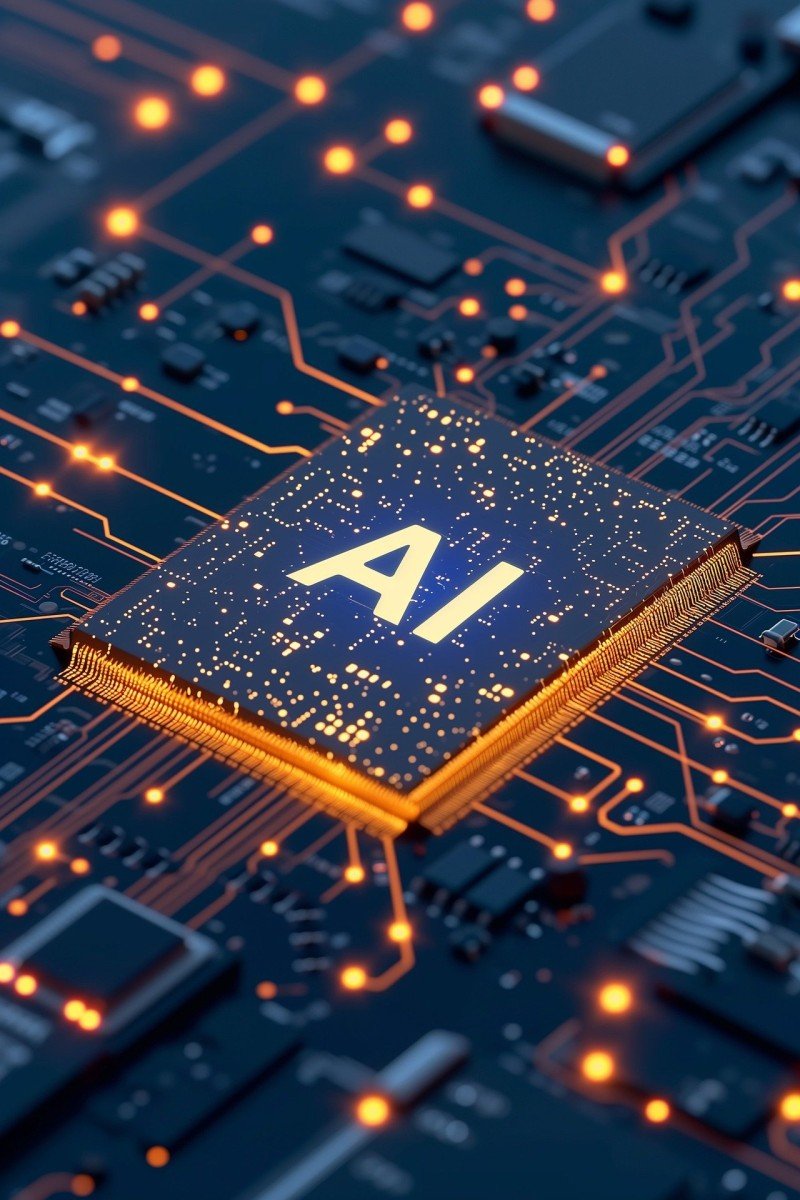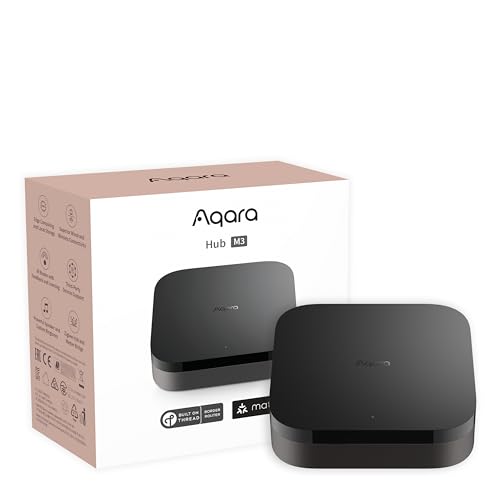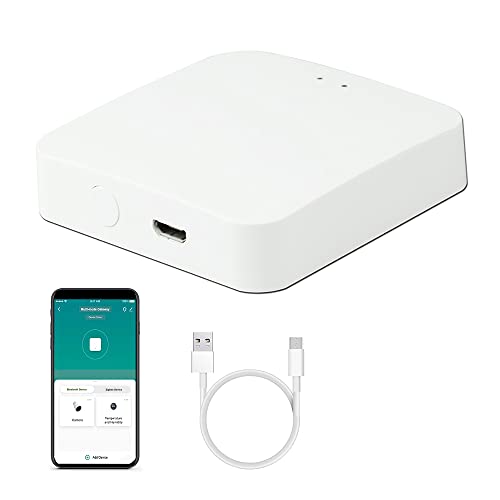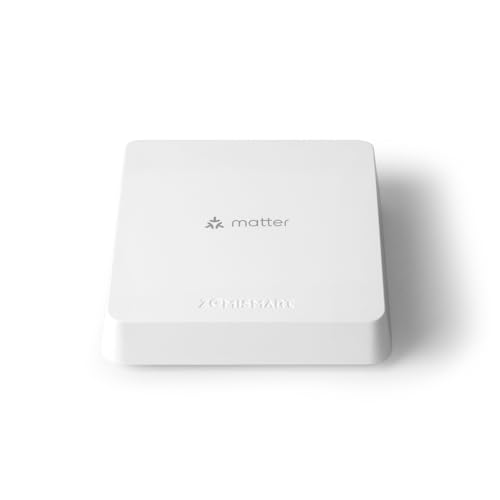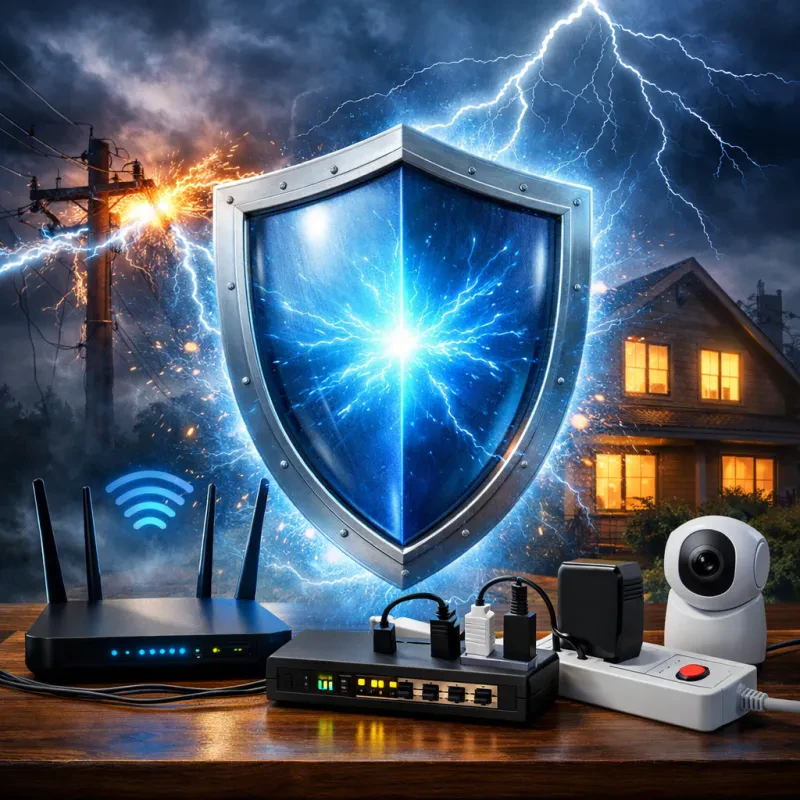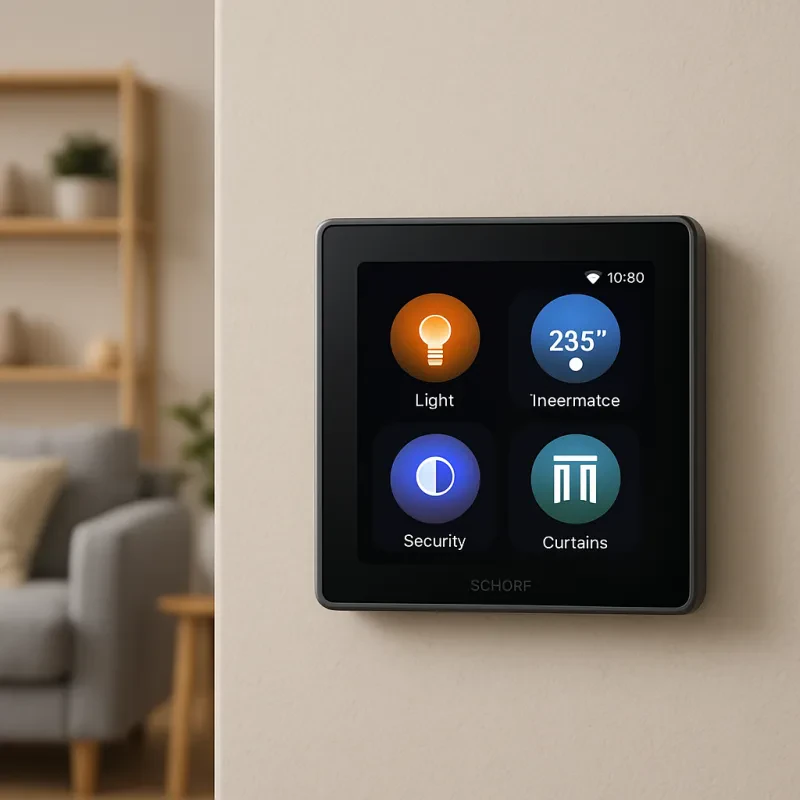Introduction to AI and Smart Home Technology
Artificial intelligence has become a pivotal force in the evolution of smart home technology. The integration of AI into everyday devices has revolutionized how individuals interact with their living spaces, transforming traditional homes into advanced smart environments. Over the past decade, technological advancements have led to the proliferation of smart devices equipped with AI capabilities, enhancing convenience, efficiency, and security.
Smart home technology encompasses a variety of devices, including smart thermostats, security systems, lighting controls, and appliances that can be managed remotely or automatically. These innovations rely on AI algorithms to learn users' preferences and behaviors, allowing for a customized experience. For instance, smart thermostats can analyze usage patterns to optimize energy consumption, thereby reducing utility bills and contributing to environmental sustainability.
Additionally, voice-activated assistants, such as Amazon's Alexa or Google Assistant, exemplify the seamless integration of AI into daily routines. These systems interpret verbal commands, enabling users to control various smart devices effortlessly. This functionality not only improves user experience but also simplifies household management. As a result, homes are becoming increasingly interconnected, with AI facilitating interaction between devices and the residents.
The rise of the Internet of Things (IoT) complements these advancements, allowing devices to communicate with one another, share data, and coordinate actions. Consequently, smart homes are equipped to offer enhanced services, such as security alerts, maintenance reminders, and energy-saving recommendations. This interconnectedness signifies a profound shift in how individuals perceive and utilize their living spaces.
As we progress toward 2025, the landscape of AI and smart home technology is expected to evolve significantly. Emerging trends suggest that advancements will focus not only on enhancing the functionality of devices but also on ensuring data security and privacy. The future promises even more intelligent devices that will continue to reshape modern living accordingly.
Emerging Trends in AI for Smart Homes
The integration of artificial intelligence (AI) in smart home devices is evolving rapidly, with several trends emerging that significantly enhance their functionality and user experience. One of the most notable advancements is in voice recognition technology. Recent improvements have made it possible for smart home devices to accurately understand and respond to user commands, even amidst background noise or varied accents. This advancement allows users to control their devices more effortlessly, making interactions feel more natural and intuitive.
Another significant trend is the development of contextual understanding within smart devices. By leveraging extensive data analysis and improved algorithms, these devices can now interpret the context in which commands are given. This means that a smart thermostat might adjust the temperature not just based on a spoken command but also by considering factors like the time of day, weather conditions, and historical usage patterns. Contextual awareness enhances the efficiency of smart home systems, creating a seamless user experience whereby devices anticipate needs rather than simply reacting to commands.
Furthermore, machine learning capabilities are at the forefront of AI advancements in smart homes. Devices equipped with machine learning can learn and adapt to user preferences over time. This adaptability allows them to provide personalized recommendations and automated adjustments that closely align with an individual’s habits. For instance, a smart lighting system can learn when a user typically arrives home and adjust the lighting accordingly, which not only enhances comfort but also contributes to energy savings.
Moreover, as manufacturers continue to prioritize privacy and data security, the integration of AI will also focus on ensuring that these devices maintain user confidentiality while still delivering tailored experiences. As these trends continue to develop, it is evident that AI holds the potential to transform smart homes into more intelligent, responsive, and user-centric environments.
Enhanced User Experience Through Personalization
The integration of artificial intelligence (AI) into smart home devices is set to revolutionize user experience through advanced personalization. By analyzing a wealth of data collected from user interactions and behaviors, AI systems can develop insights that significantly enhance how devices serve individual needs. This move towards a customized environment not only improves convenience but also fosters a sense of home that feels more responsive and attuned to the user’s preferences.
One of the most compelling examples of this evolution can be found in mood-based lighting systems. These systems utilize AI to learn a user's preferences over time, adjusting the intensity and color of lighting based on the time of day or specific activities. For instance, during evening hours, the system may automatically switch to warmer tones, creating a relaxing ambiance, while brighter and cooler lighting might be deployed during the day to enhance productivity. Such capabilities reflect an adaptable smart home ecosystem that prioritizes the comfort of its occupants.
Temperature regulation is another domain where AI excels in providing personalized experiences. Smart thermostats utilize algorithms that analyze individual routines and preferences to optimize heating and cooling schedules. By understanding when occupants are home or away, these devices can minimize energy consumption without sacrificing comfort. As a result, homeowners not only enjoy a tailored living environment but also experience significant cost savings and improved energy efficiency, demonstrating the dual benefits of this technology.
As AI continues to evolve, we can anticipate even more sophisticated applications of personalization within smart home devices. The ability to foresee user needs and adapt to their behaviors presents an exciting future. In this way, the landscape of smart living will transform, making everyday life simpler and more enjoyable as technology seamlessly integrates with personal lifestyle choices.
Improved Interoperability Among Devices
The integration of artificial intelligence (AI) in smart home devices is set to revolutionize the way these technologies interact with one another. Interoperability, which refers to the ability of different systems or devices to communicate and work together effectively, is essential for creating a seamless user experience. By 2025, advancements in AI are expected to significantly enhance interoperability among a diverse range of smart home devices, including thermostats, security cameras, lighting systems, and appliances.
One of the primary ways AI will foster improved interoperability is through the development of standards and protocols that facilitate communication among devices from different manufacturers. Currently, many smart home devices operate within closed ecosystems, making it challenging for users to integrate devices across various brands. With the infusion of AI, this challenge can be overcome as intelligent algorithms can adapt and learn user preferences, ensuring that devices communicate effectively regardless of their origin.
For instance, using AI-based platforms, users will be able to set specific triggers that synchronize different devices. A simple command could lower the thermostat, switch off the lights, and activate the security system when the homeowner leaves the house. Moreover, machine learning algorithms will enable these devices to anticipate user needs based on historical patterns, thus orchestrating a more efficient home environment.
Furthermore, the emergence of voice-activated assistants will play a crucial role in enhancing interoperability. These AI-driven interfaces leverage natural language processing to facilitate seamless interaction between various devices, simplifying user engagement. As more devices become interconnected and integrated with AI, users can expect a more cohesive and customized smart home experience.
In conclusion, the expectations for improved interoperability among smart home devices by 2025 are significant. As AI technology continues to evolve, it will not only bridge the communication gaps between devices but also create a more harmonious and efficient living environment for users.
Energy Efficiency and Sustainability with AI
The integration of artificial intelligence (AI) in smart home devices is heralding a new era of energy efficiency and sustainability. By 2025 and beyond, we can expect significant advancements in how these technologies operate, making homes not only smarter but also more environmentally friendly. One of the key functionalities of AI in this context is its ability to optimize energy consumption through smart meters and sophisticated algorithms. These tools gather data on household energy usage patterns, analyzing the information to identify less efficient practices and suggest improvements.
Smart meters, paired with AI-driven systems, can provide real-time insights into energy consumption. They enable homeowners to monitor their usage dynamically, adapting it according to their routines and needs. For instance, AI can schedule major appliances to operate during off-peak hours when energy costs are lower, thereby reducing expenses and fostering a more sustainable energy grid. This optimization not only benefits individual users but also contributes collectively to mitigating the carbon footprint associated with energy production and consumption.
Furthermore, AI algorithms can promote eco-friendly practices by suggesting adjustments based on user preferences and historical data. For example, if a household regularly exceeds its energy budget, the AI can recommend changes such as upgrading to energy-efficient appliances or adopting energy-saving behaviors—like adjusting heating and cooling settings more judiciously. In addition, predictive analytics can forecast future energy needs based on usage patterns and weather forecasts, allowing homeowners to prepare in advance and avoid wastage.
In summary, the fusion of AI and smart home technologies is a promising development towards achieving energy efficiency and sustainability. Through proactive monitoring and automated optimization, these systems can play a crucial role in creating greener living environments, paving the way for a more sustainable future. As we move toward 2025, embracing these innovations will be essential in addressing the pressing challenges of energy consumption and climate change.
Security Enhancements in Smart Homes through AI
As advancements in technology continue to permeate everyday life, artificial intelligence (AI) is playing a pivotal role in enhancing security within smart homes. Smart home devices are no longer simply conveniences; they are becoming central components in a comprehensive security strategy. AI-driven systems are revolutionizing surveillance methods by providing enhanced capabilities to identify potential threats and respond in real-time.
Modern surveillance systems equipped with AI can analyze video feeds and detect unusual activities, allowing for immediate alerts to homeowners and monitoring services. Through the use of sophisticated algorithms, these systems can discern between routine movements and suspicious behavior, thereby reducing false alarms and increasing the reliability of alerts. This proactive approach to threat detection significantly enhances the safety of residences.
Additionally, AI technology enables the implementation of facial recognition features in security cameras. By learning to distinguish familiar faces from those of potential intruders, these systems can automatically flag unrecognized individuals. For instance, if a recognized person enters the vicinity of the property, the system remains passive; however, when an unknown individual appears, the system can send prompt notifications to the homeowner or security service. This level of monitoring ensures that homeowners can maintain a secure environment without constant surveillance.
AI's learning capabilities mean that the more a system is used, the more efficient and accurate it becomes. It continually refines its ability to assess risks, adapt to the household's specific context, and identify patterns of behavior. Such adaptability is crucial in areas where criminal activities are prevalent, providing peace of mind to residents. By 2025 and beyond, it is anticipated that these AI-driven security enhancements will become standard in smart homes, ultimately creating safer and more secure living environments for all.
Potential Challenges and Ethical Considerations
The rapid advancements in artificial intelligence (AI) within smart home devices have undoubtedly transformed how individuals interact with their living spaces. However, this technological evolution also brings forth a host of challenges and ethical dilemmas that warrant careful consideration. One of the most pressing issues revolves around data privacy. As smart home devices often collect vast amounts of personal information to tailor services to users' preferences, concerns regarding the security of this data arise. Cybersecurity threats can potentially expose sensitive information, making it imperative for manufacturers to prioritize robust security measures that protect users’ privacy.
Moreover, the growing dependence on smart technology in everyday life raises important questions about societal implications. As households adopt these AI-enabled devices, a reliance on automated systems may diminish critical skills and human interaction. This paradigm shift could lead to a less engaged society, where individuals become passive recipients of technology rather than active participants in their environments. Addressing this dependency will require fostering awareness and promoting a balanced approach to technology integration within the home.
Furthermore, the ethical implications of AI in smart home devices extend to the need for comprehensive regulations and standards. As these technologies continue to evolve, developing a regulatory framework that ensures user rights and security is crucial. Policymakers and stakeholders must collaborate to establish guidelines that govern data usage, privacy protection, and the responsible development of AI applications. Striking a balance between innovation and ethical responsibility will be essential in mitigating potential risks and enhancing public trust in smart home technologies.
In consideration of these elements, it is vital that society engages in proactive discourse regarding the implications of AI in smart homes, promoting responsible practices that safeguard users’ rights while embracing the benefits of intelligent automation.
The Role of IoT in the Future of Smart Homes
The convergence of the Internet of Things (IoT) and artificial intelligence (AI) is poised to transform the landscape of smart home devices significantly. As we move towards 2025 and beyond, the role of IoT in facilitating a seamless, interconnected environment will become increasingly vital. Smart homes will leverage a network of interconnected devices that communicate with one another, sharing real-time data to enhance the user experience. This connectivity is fundamental in allowing devices to perform autonomously and adaptively, responding intelligently to various inputs.
The integration of AI with IoT-enabled devices will lead to the development of smart systems that learn and evolve. For instance, smart thermostats will not only adjust temperatures based on user preferences but also anticipate changes by analyzing historical data and environmental factors. This intelligent response reduces energy consumption and maximizes comfort, showcasing the potential of interconnected systems. Furthermore, smart appliances, security devices, and even lighting systems will operate collectively, making adjustments based on combined data inputs from various sensors and user interactions.
Real-time data sharing will also enhance home automation experiences. With AI algorithms processing incoming data from multiple sources, smart home systems can make informed decisions, optimizing operation schedules or alerting homeowners to potential issues before they escalate. As these technologies mature, the ability to customize user experiences further will grow, allowing residents to set unique preferences that the system learns and adapts to over time.
In this evolving environment, we can anticipate a future where IoT and AI collectively redefine comfort, security, and energy efficiency in smart homes. The resulting synergy will not only simplify daily tasks but also create smarter living spaces that align closely with our lifestyles, ultimately leading to a more intuitive and automated home experience.
Conclusion: Envisioning the Future of AI in Smart Homes
As we look towards 2025 and the years that follow, the evolution of artificial intelligence within smart home devices promises to reshape domestic life significantly. Key takeaways from our exploration indicate that AI technology is not only becoming more integrated into daily household activities but is also fostering a more interactive and personalized living experience. From climate control systems that learn user preferences to security systems that adapt based on behavioral patterns, the potential for AI to enhance comfort and safety in the home is immense.
Moreover, the rising demand for energy efficiency and sustainability is driving innovation in smart home solutions. AI will play an essential role in optimizing energy use, potentially leading to significant cost savings and a reduced carbon footprint. Homeowners can anticipate advanced systems that offer real-time feedback on energy consumption, enabling them to make informed decisions that promote environmental stewardship.
However, with these advancements come notable implications, particularly regarding privacy and security. As smart devices become more interconnected, concerns regarding data protection and potential cyber threats grow. It is imperative that consumers remain diligent and prioritize devices that offer robust security features and transparent data usage policies. Balancing the integration of advanced technologies with mindful practices around privacy will be crucial as we navigate this evolving landscape.
In conclusion, embracing AI in smart home devices by 2025 and beyond provides exciting opportunities to enhance the quality of life. The focus will not only be on technological advancement but also on ensuring that these innovations are approached thoughtfully and responsibly. As we move forward, striking a balance between leveraging AI's benefits and safeguarding personal privacy will ultimately define the success and acceptance of smart home technologies in everyday life.
